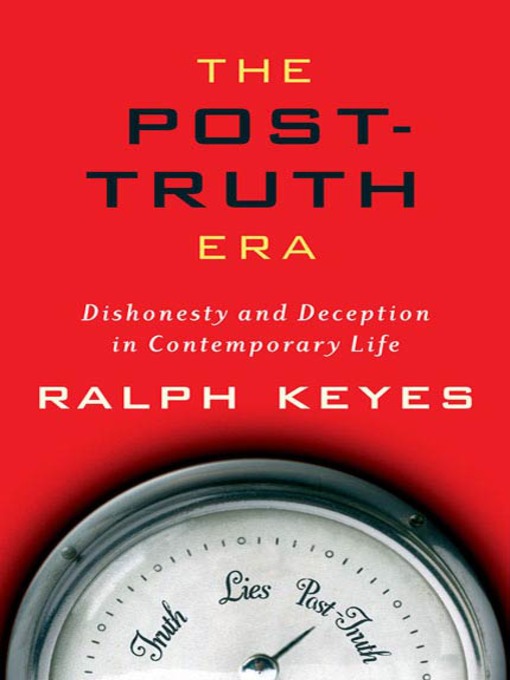
The Post-Truth Era
Dishonesty and Deception in Contemporary Life
کتاب های مرتبط
- اطلاعات
- نقد و بررسی
- دیدگاه کاربران
نقد و بررسی

September 20, 2004
"Casual duplicity picks at the threads of our social fabric," Keyes warns, and not just because it creates a greater tendency toward suspicion and mistrust. The consequences of letting people get away with lying can be severe: when somebody gets a job based on a bogus résumé, for example, he or she deprives those applicants who didn't falsify their work credentials. Keyes deplores what he dubs an "alt.ethics" that has made lying more acceptable, and he points to a variety of contributing factors in society, from postmodernism's denial of a literal truth to the ease of making unverified statements online. This largely anecdotal broadside essentially replays David Callahan's The Cheating Culture
, though with fresher stories that address recent incidents like the Martha Stewart trial and the controversies surrounding several authors and journalists who have blurred fiction and nonfiction or simply fabricated their stories. Keyes takes a relatively nonpartisan approach; he criticizes Bill Clinton and Al Gore for their false statements, but attacks George W. Bush as the "quintessential baby boomer," accusing the president, and an entire generation, of a self-righteous refusal to confront, let alone speak, the truth. He doesn't offer much of a solution beyond a reaffirmation that lying is wrong and we shouldn't do it, advice that will surprise no one but may get some additional airplay in this heated election cycle. Agent, Michelle Tessler.

October 15, 2004
Lying is so much a part of everyday life that everybody does it and everybody expects it, even while polls show Americans long for ethics and integrity in public officials. Keyes examines how we have come to the troubling trend toward the "routinization of dishonesty." In part one of this fascinating book, he provides a brief history of lying from the medieval ages to the present and explores the reasons behind the decline in ethics. Part two focuses on how modern culture inadvertently promotes lying by downplaying ethical issues while emphasizing emotional health and placing more emphasis on personal, professional, and national myth making. The result is the rise in high-profile liars among journalists, politicians, and corporate executives. Finally, Keyes examines the consequences of a culture that tolerates lying as a "no-fault transgression" with little or no consequences for the liar but a disturbing rise in suspicion throughout the culture. This is a thoughtful, often amusing look at the way we dodge the truth and tolerate dishonesty.(Reprinted with permission of Booklist, copyright 2004, American Library Association.)

























دیدگاه کاربران